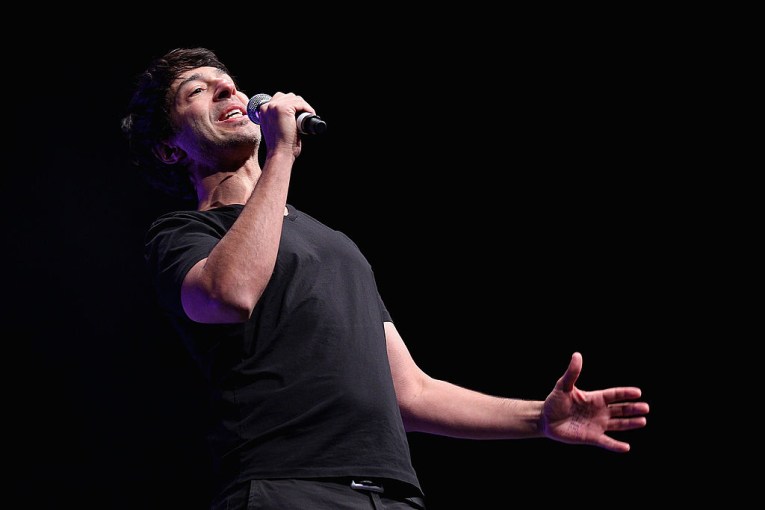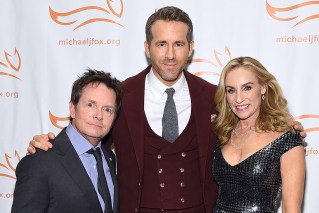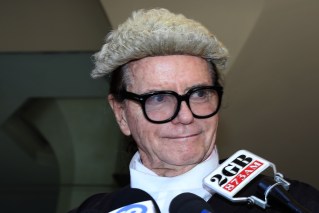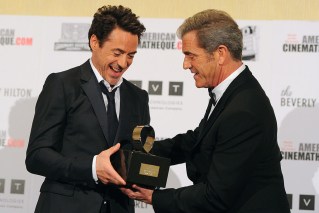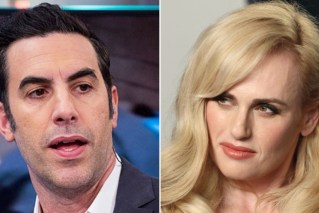The hate-filled secret life of a radio legend: No, not Alan Jones

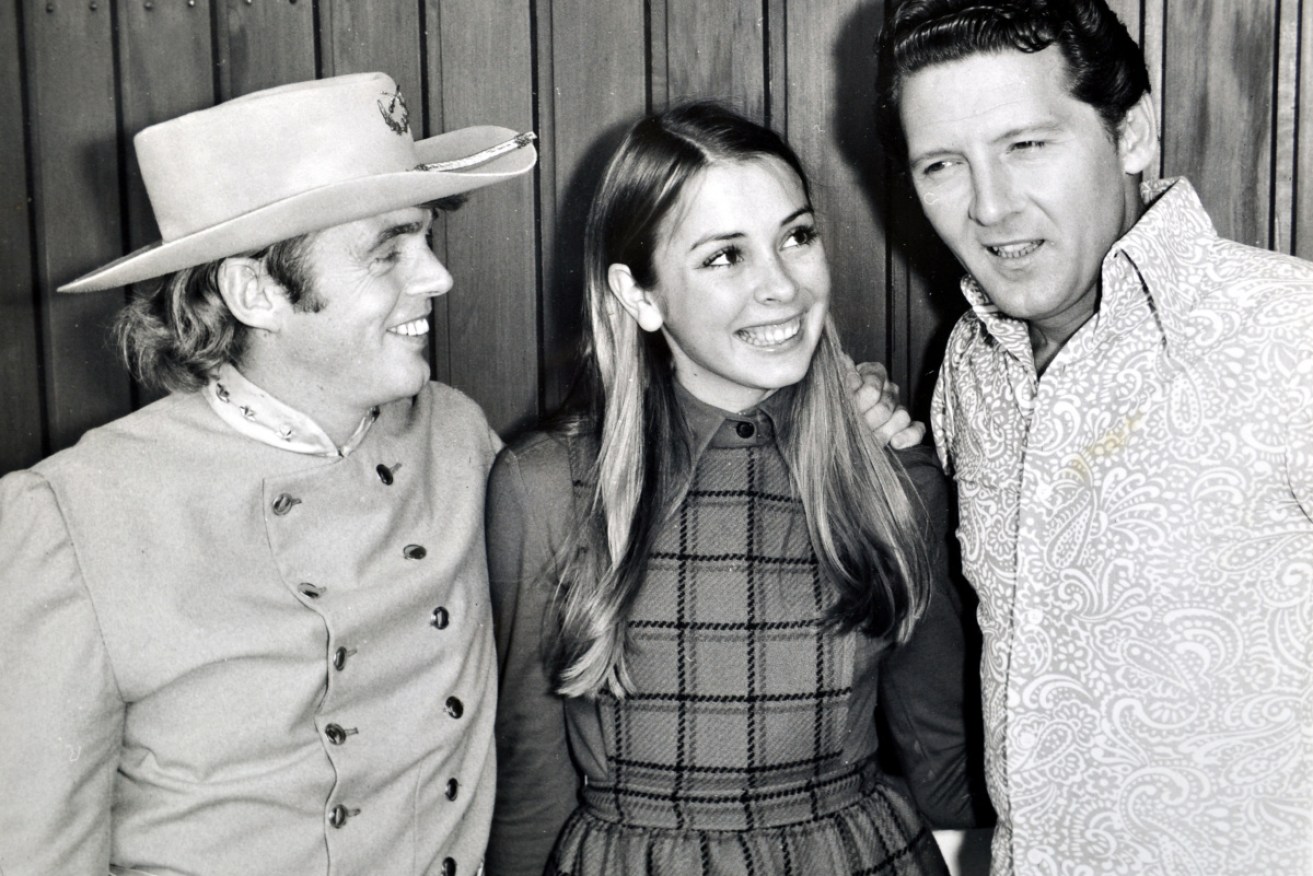
Ward Pally Austin, left, with his wife Irene, whom he courted when she was 14. Here they're meeting rock legend Jerry Lee Lewis who married his 13-year-old cousin. Photo: Ward Austin tribute page
If it seems unlikely that a money-spinner like Alan Jones could be thrown off the air because of his abusive, defamatory and even threatening remarks, consider this: it’s been done before.
Ward Pally Austin was the king of Sydney radio in the 1960s; an old school record-spinner celebrated for his oddball trademark expressions such as “a rickapoodie and a fandooglie” and “too much for the human unit”.
Austin was fired from a number of radio gigs for making off-colour remarks, most famously, “How would you like something hot and throbbing between your legs?” when advertising a motorbike.
Crude and outrageous? The more the better
That particular vulgarity didn’t kill his career – in fact it added to his hipness.

Austin, when at work or home, always dressed in white. Photo: Ward Austin tribute page
Once at music station 2UW, Austin thrived for some years at number one – and helped lift the station to the number one spot, too – despite ugly drunken behaviour in nightclubs, a police raid on his home and the confiscation of unlicensed guns and Austin’s well-aired concerns that black people were to be feared “because they just might take over”.
When radio and TV personality Dita Cobb poured an ice bucket over Austin’s head – after he allegedly made a racist comment to Sammy Davis Jr – it was more a wacky piece of gossip than a cause for national disquiet.
When, at the age of 31, Austin began courting a 14-year-old girl, well, any squeamishness was offset by the fact Elvis Presley had done the same thing. Where Elvis waited eight years to marry Priscilla, Austin waited just three to marry Irene Combe.
Celebrated as a fun crazy guy in death
When Austin died from alcoholism in 1995, he was generously remembered by his peers – and his decline as a radio star was shrugged off into history as a natural consequence of changing tastes.
David Dale’s obituary in The Sydney Morning Herald observed: “His contemporaries from the ‘golden age’ of rock ‘n’ roll rushed to pay tribute. John Laws described him as ‘a wonderful eccentric’. Brian Henderson said he was the last of a generation of disc jockeys who ‘made a record come alive by talking about it’.
“John Brennan, program director of 2UE, said Austin had brought ‘fun, excitement and rock ‘n’ roll’ to Sydney afternoon radio in the 1960s. He did some silly things, but he was so loveable you would end up forgiving him,’ he said.”

Ward Pally Austin believed he was the reincarnation of a Confederate officer, a shtick he played from an early age. Photo: Ward Austin tribute page
To me, as a child and then teenager, following Austin’s exploits in the grubby Sunday papers of the day, and then, as a journalist, wondering where he’d gone, I nursed a theory the radio world had one day, quietly, decided he was more a problem than an asset.
As my father still likes to say: “Mad bastards don’t better with age. They just get meaner.”
Anyway, I personally felt bad – even guilty – when Austin died. Because in 1992, I published a gonzo investigative piece in the now defunct magazine HQ that answered the question: how mad and bad was Ward Pally Austin?
Ward always dressed in white, and sincerely believed he’d been a Confederate officer in a previous life – and when he was drunk he’d channel this dead soldier, sounding a little like Foghorn Leghorn.
Home fit for an Old South racist
His house in the tony Sydney suburbs of St Ives was a clunky replica of a cotton-grower’s mansion – or as he put it, a scaled own version of Tara, the grand house from the epic cinema soapie Gone With The Wind.
It was a spooky place. The first couple of days I visited Austin at his pile, he parked me in the kitchen with two thick folders of yellowing press clippings, while he sat upstairs on his bed – in his white tracksuit – and watched television as he drank sherry from a flagon.
We didn’t really talk. Then he invited me to come along – as his driver – to a charity do for sick children. He was master of ceremonies he said. This wasn’t quite true, although he put on a fresh white suit and shoes for the occasion.
By the time he was asked to say a few words, he was already juiced and emotional. He blubbered a few words about poor vulnerable children and stumbled away.
Half an hour later he took to the microphone, weeping openly and snarling, “Don’t let them take your guns”.

Ward and Irene Austin, dressed as Civil War characters at a Sydney nightclub in 1969. Photo: Ward Austin tribute page
I’ve always been pretty forgiving of drunks. If someone – especially someone famous – is drunkenly ribald or aggressive, I wouldn’t just go ahead and publish their rant without talking to them sober first. That night, Ward Pally Austin gave me plenty of material.
When the charity event was winding down, Ward said I had to take him to the Bourbon and Beefsteak, a fading showbiz hangout decked out in polished wood and brass in Kings Cross.
It was an hour’s drive away. I said he’d be better off going home to bed. But he insisted. What kind of journalist was I – he said – to miss such an opportunity?
At the bar he was quickly recognised, first by a couple of lawyer types who offered to buy him drinks. When they got tired of his company, one of them fronted me and said I owed them a couple of rounds of whisky. Austin had sent them my way. I told the guy to get lost.
By then, Austin he was sitting at a large table of people who were thrilled to be in the company of a legend. I left him to it and sat at the bar and drank a coffee and Kahlua to keep me bright.
Suddenly, I heard snarling, and turned to see him rising from the table like a gunslinger caught cheating at cards.
“Don’t mess with me. Don’t mess with me,” he was saying.
How he’d been messed with, I’m not sure.
In his heyday, he’d been involved in a few nightclub brawls and it seemed he was about to start another one for old time’s sake.
Journalist and interview subject come to blows
At this point, I physically took hold of him and dragged him out of the bar – and ended up wrestling on the front steps. This gave him a new focus for his anger. He struggled to get away, but I got my arm around his torso and dragged him – in much the same way Jesus is shown to drag the cross in paintings – along the footpath.
When I opened the car, he tried to run off but I managed to wrestle him under control.
For a moment he was very quiet, staring through the windscreen. Then I felt his eyeballs turning my way. I was nervous that he’d do something crazy like grab the wheel.
Instead he said: “I could kill you. You Jesus lover, n***er lover.”
He then talked about a black conspiracy and my part in it. He also threatened to kill me again, making clear he was a god and I was nothing.
I pulled the car over, to dump him at the side of the road. Then I thought better of it. He was my problem.

The legendary Bourbon and Beefsteak in Kings Cross, scene of many famous fights. Ricky Ponting got a black eye here in 1999. Seven year earlier, John Elder and Ward Austin had a wrestling match on the front steps. Photo: supplied
“One more word,” I said.
And so, with the radio on, and Austin talking quietly to himself, I delivered him to his creepy mansion gates, and left him to his miserable self. It was getting on to four o’clock in the morning.
A few hours later, a phone call, a very jolly voice: “Hello John. Ward here. Would you be up for a spot of lunch?”
He wanted to go to the local Black Stump, a franchised steak house with gingham table cloths, golden-globe candle holders and baked potatoes in aluminium foil with chives and sour cream. When I first started taking girls out to dinner, the Black Stump was the place to go. So I was looking forward to it, in a nostalgic kind of way.
We sat in a booth down the back. He asked if I was paying and then ordered a whisky. I put my recorder on the table and said, “I don’t know yet how to deal with last night. But from this point, everything’s on the record.” I also asked him to take it easy with the booze for the next hour.
“Did you think,” he said, “I was going to take it all back?”
The dark confession over a rump steak
I told him abusive drunks were a cultural staple – but where did this demented hatred of black people come from?
He went on at length about the blue-eyed, blonde-haired human was the only sort of person worth caring about. I reminded him of his emotional speech at the charity event about vulnerable children.
Yes, he cared about children, he said, but only white children. Regarding black children, he said: “Let ’em die by the millions.”
Had he always felt this way? Had he always been happy to share his ideas? “Oh yes.”
My attitude has always been to let people talk, no matter how ugly their words. If you wait long enough, if you stay patient, you just might get past the bile and find something interesting – a clue as to where the crap comes from.
With Austin, he felt it began with a head injury as a small child and a long stay in hospital. No one visited him, he said. No one comforted him. It changed him.
Oddly enough, I’d had a similar experience when I was five – left in a country town hospital with hepatitis, as my family moved several hundred kilometres away for my dad’s work. It changed me too, made me a bit of a social oddball, lit up some anger I sat on for years, and then grew out of it.
But yes, abandonment is a toxic event. I understood that much.
For Austin, and I was playing armchair psychologist, he made himself special by being goofy – which worked at the time in radio land – but also by seeing him vastly superior. To make himself feel better, he needed someone to hate.
But of course he didn’t make himself feel better at all. We ended the lunch with Austin in tears, and him grateful that his son hadn’t turned out as he had, mad and angry. He said it was a good thing that “this all ends with me”.
When the story was published, Austin occasionally called me, was very genial and even grateful the boil had been somewhat lanced.
There was some renewed interest in Ward Pally Austin from media outlets, but he generally confined his remarks to the fact that he was now taking Prozac for depression, and Viagra for a love life he hoped to resurrect.
His ex-wife, Irene, called me, asked to meet, at a place where other people wouldn’t see us. We met at a river spot. Like Ward, she was thankful the truth of things had been finally told.
